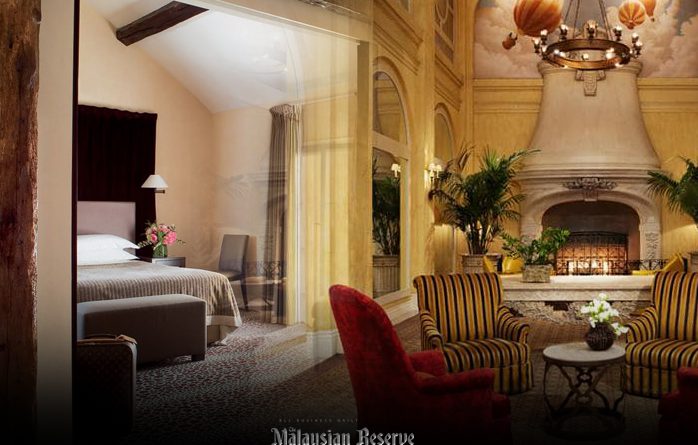Short-term rental potentially best solution for property overhang
TURNING unused property into short-term rental accommodation could be one of the possible ways for homeowners to make extra income to cover their monthly mortgage.
Luxury Boutique Accommodation founder Andrew Tan said with the residential property overhang continuing each year, such a rental business model might be a short-term solution to reduce financial stress in terms of servicing the mortgage loan.
“I always believe that a vacant property is a waste of resources and properties tend to get ‘spoiled’ faster if it is just lying idle,” he told The Malaysian Reserve (TMR).
Tan also said property players would have to resort to rental rather than house purchase due to the oversupply of properties and slow take-up rate in general.
“Another issue is that, most of the properties are sold at a highly inflated price which demands a higher rental to cover their monthly mortgage repayment. As such, I don’t think the rental market is actually declining,” he said.
Previously, TMR reported that Malaysia has been saddled with a massive property overhang for four years after the market nosedived, while releases and property launches are still ongoing. Even so, the existing units remain untouched.
In the third quarter of 2018, a total of 43,219 residential units with the value of about RM29.7 billion remain unsold nationwide.
Tan added that while the business model is deemed as a good way out, those who wish to explore will be required to remain considerate towards joint management bodies of residential properties.
“However, if anyone keen to explore in this business model, I would highly recommend that you look for properties that are ‘Airbnb-friendly’, in which the management would allow for short-term rental.
“Many property management (companies) actually don’t prefer this kind of activities in their building due to (the risk of) security breach, as well as the lack of public awareness and responsibility,” he said.
According to Tan, adopting such a business model would see tenants moving in and out every other day, while some of them tend to rent the property to party.
Despite the fact that many property management bodies are still refusing to allow hosting and short-term rental activities held in their buildings, the recent Hari Raya season saw 9,700 Airbnb-registered hosts receiving over 197,000 international guests, earning almost US$6.7 million (RM27.82 million) in total.
Airbnb South-East Asia, Hong Kong and Taiwan GM Mike Orgill said the company continues to see Malaysians choosing to stay with Airbnb during peak periods like Hari Raya.
“At a time when hotels are busy, Airbnb helps Malaysia host more travellers and grow tourism. Every Airbnb visitor is an extra customer at local stores or eateries,” he told TMR.
According to Tan, the main reason why short-term vacation rentals are highly in demand during festive seasons is the price concern.
“During these periods, most people will travel with their family members. Booking the entire apartment unit would seem more economical than making reservation for several hotel rooms.
“Secondly is the accessibility to kitchen for those who travel with families. This is because most units that are utilised in this business model are condominiums or apartments,” he said.
Meanwhile, Airbnb has released a potential regulatory and tax framework for short-term rentals in Malaysia, which targets to inform the ongoing work of the Ministry of Tourism and Culture and Malaysia Productivity Corp to help grow tourism and address local challenges.
Its South-East Asia Public Policy head Mich Goh said the company will support the work of local authorities and sustainably grow Malaysian tourism as it works towards achieving a target of 30 million international tou-rists for Visit Malaysia 2020.
“We have listened to local authorities and put forward a regulatory framework that we respectfully believe would help grow Malaysian tourism now and into the future.
“This framework recognises Malaysians and travellers who are choosing to stay, while addressing issues like neighbourhood amenity,” she said. Goh added that the plan would generate significant additional revenue for the government.
“A simple change in the existing legislation would unlock millions of additional revenue for vital local services and infrastructure,” she said.
The framework aligns itself with the Expedition Strategies’ research commissioned by Airbnb.
The study revealed that 89% of Malaysians would allow people to rent their properties through Airbnb, while 78% would consider staying in short-term rentals.
Source: TheMalaysianReserve

